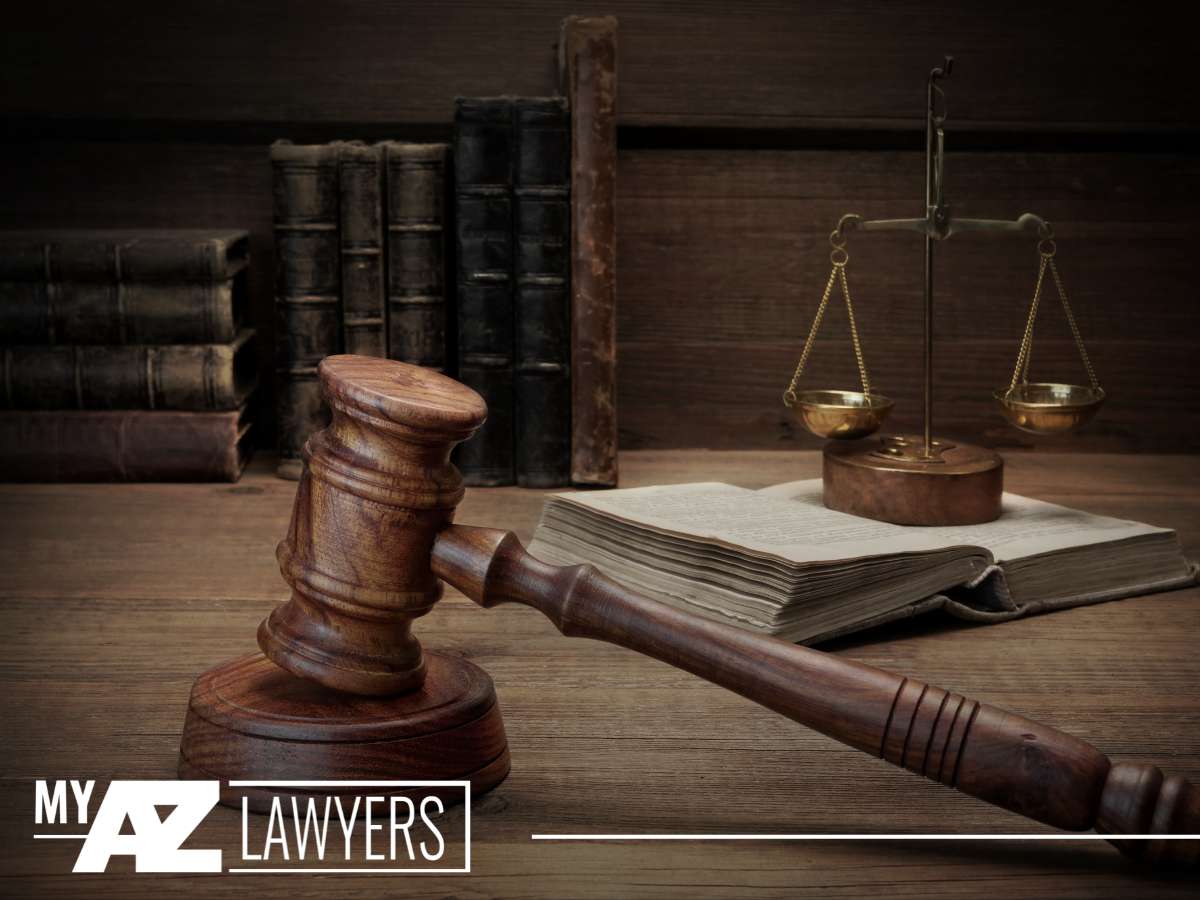Table Of Contents
Arizona Drug Possession Defense Attorneys
If you’ve been charged with drug possession and other drug-related offenses in Arizona, a public defender might not be sufficient to meet your needs. Most drug possession offenses in Arizona are charged at the felony level, which can mean a lifetime of negative consequences. However, a skilled defense attorney can identify the best legal strategies for your specific circumstances that could lead to your charges being reduced or even dismissed. You have the right to hire your own defense counsel if you aren’t happy with the attorney appointed to your case by the court. To schedule your free consultation with one of our experienced Glendale criminal defense attorneys, call 480-470-1504.

A.R.S. § 13-3407
A.R.S. § 13-3407 is Arizona’s law regarding the possession, use, administration, acquisition, sale, manufacture, and transportation of dangerous drugs. It states that “a person shall not knowingly:
- Possess or use a dangerous drug.
- Possess a dangerous drug for sale.
- Possess equipment or chemicals, or both, for the purpose of manufacturing a dangerous drug.
- Manufacture a dangerous drug.
- Administer a dangerous drug to another person.
- Obtain or procure the administration of a dangerous drug by fraud, deceit, misrepresentation, or subterfuge.
- Transport for sale, import into this state or offer to transport for sale or import into this state, sell, transfer or offer to sell or transfer a dangerous drug.”
Violations of paragraphs 2, 4, 5, and 7 are class 2 felonies in Arizona. A violation of paragraph 6 or 3 is a class 3 felony, unless the defendant violates chapter 3 with methamphetamine, which is a class 2 felony. A violation of paragraph 1 is a class 4 felony in Arizona. The court can also choose to reduce this offense to a class 1 misdemeanor if the defendant has no prior convictions and the drug(s) involved didn’t include lysergic acid diethylamide, methamphetamine, amphetamine, or phencyclidine.
Arizona Drug Possession Penalties
Simple drug possession can be charged as a class 1 misdemeanor, which is the most serious type of misdemeanor in Arizona, but pales in comparison to a felony conviction. A misdemeanor is punishable by a maximum of 6 months in jail. The sentences for felonies can be much longer, and come with dire consequences like the loss of certain civil rights and severe difficulties finding employment and housing. Arizona’s criminal penalties also increase if the defendant has prior convictions. Arizona’s penalties for first-time felony offenders are defined by A.R.S. § 13-702. The penalties for repetitive felony offenders are defined by A.R.S. § 13-703.
First-Time Offense
- Class 2: 3 years mitigated, 4 years minimum, 5 years presumptive, 10 years maximum, 12.5 years aggravated
- Class 3: 2 years mitigated, 2.5 years minimum, 3.5 years presumptive, 7 years maximum, 8.75 years aggravated
- Class 4: 1 year mitigated, 1.5 years minimum, 2.5 years presumptive, 3 years maximum, 3.75 years aggravated
Second-Time Offense
- Class 2: 4.5 years mitigated, 6 years minimum, 9.25 years presumptive, 18.5 years maximum, 23 years aggravated
- Class 3: 3.25 years mitigated, 4.5 years minimum, 6.5 years presumptive, 13 years maximum, 16.25 years aggravated
- Class 4: 2.25 years mitigated, 3 years minimum, 4.5 years presumptive, 6 years maximum, 7.5 years aggravated
Third-Time Offense
- Class 2: 10.5 years mitigated, 14 years minimum, 15.75 years presumptive, 28 years maximum, 35 years aggravated
- Class 3: 7.5 years mitigated, 10 years minimum, 11.25 years presumptive, 20 years maximum, 25 years aggravated
- Class 4: 6 years mitigated, 8 years minimum, 10 years presumptive, 12 years maximum, 15 years aggravated
Aggravating & Mitigating Factors For Arizona Drug Charges
Aggravating factors are factors that can give a judge cause to extend a defendant’s prison sentence beyond the statutorily prescribed maximum. Mitigating factors are those that might persuade the judge to issue a reduced prison sentence. Arizona’s aggravating and mitigating factors for various criminal offenses are defined by A.R.S. § 13-701. To discuss any aggravating or mitigating factors that could be relevant to your drug possession case in Phoenix and the surrounding area free of charge, call 480-470-1504 for your free consultation.
Aggravating Factors
- Infliction or threatened infliction of serious physical injury
- Use, threatened use, or possession of a deadly weapon or dangerous instrument during the commission of the crime
- The value of any property taken or damaged
- Presence of an accomplice
- Especially heinous, cruel, or depraved manner in which the offense was committed
- The offense was committed for the receipt or expectation of anything of pecuniary value
- The defendant procured the commission of the offense by payment, or promise of payment, or anything of pecuniary value
- The defendant was a public servant and the offense involved conduct directly related to the defendant’s office or employment
- During the course of the commission of the offense, the death of an unborn child at any stage of its development occurred
- The defendant was previously convicted of a felony within the ten years immediately preceding the date of the offense
- The offense was committed in the presence of a child
- During or immediately following the commission of the offense, the defendant used a mask or other disguise to obscure the defendant’s face to avoid identification
Mitigating Factors
- The age of the defendant
- The defendant’s capacity to appreciate the wrongfulness of the defendant’s conduct or to conform the defendant’s conduct to the requirements of law was significantly impaired, but not so impaired as to constitute a defense to prosecution
- The defendant was under unusual or substantial duress, although not to a degree that would constitute a defense to prosecution
- The degree of the defendant’s participation in the crime was minor
- During or immediately following the commission of the offense, the defendant complied with all statutory duties
- Any other factor that is relevant to the defendant’s character or background or to the nature or circumstances of the crime and that the court finds to be mitigating
Charges That Can Accompany Drug Possession
If a defendant engaged in other legal conduct while under the influence of drugs or in their possession, drug possession charges may be just one of the offenses the defendant will face. Being charged with a more serious offense won’t cancel out simple possession charges. For example, if a defendant is arrested for driving under the influence of an illegal drug with the drug in their possession, the defendant may be charged with both drug possession and DUI. Consuming or possessing certain drugs can be a parole violation that can send a former convict back behind bars. The defendant can be separately charged for the possession, manufacture, etc., of drug paraphernalia.
Review Your Situation With An Experienced Arizona Defense Lawyer, For Free
Time is of the essence if you’ve been charged with drug possession and related offenses in Arizona. The right legal defense could make all the difference when you want to mitigate the damage from a drug arrest and possible conviction. My AZ Lawyers has years of experience helping Maricopa County residents determine the most effective legal strategies for their specific situations. You deserve an attorney who is confident to represent you in court but with the skills to avoid trial if possible. To schedule your free consultation with our firm, call 480-470-1504.

MY AZ LAWYERS
Email: info@myazlawyers.com
Website: www.myazlawyers.com
Mesa Location
1731 West Baseline Rd., Suite #100
Mesa, AZ 85202
Office: 480-448-9800
Phoenix Location
343 West Roosevelt, Suite #100
Phoenix, AZ 85003
Office: 602-609-7000
Glendale Location
20325 N 51st Avenue Suite #134, Building 5
Glendale, AZ 85308
Office: 602-509-0955
Tucson Location
2 East Congress St., Suite #900-6A
Tucson, AZ 85701
Office: 520-441-1450
Avondale Location
12725 W. Indian School Rd., Ste E, #101
Avondale, AZ 85392
Office: 623-469-6603













